Legislature knows best? How Kentucky lawmakers are taking power away from cities
When Kentucky Rep. Josie Raymond announced her bid for Louisville Metro Council in November, she was excited at the prospect of a new arena: local politics.
It's where she hopes to make change as a member of a largely Democratic legislative body after serving in the General Assembly amidst a Republican super majority.
“When Frankfort wouldn't pass my paid leave for state employees bill, Louisville did it for city employees. When Frankfort wouldn't pass my bill to find and mitigate the lead eating our kids' brains, Louisville did,” Raymond said in a statement announcing her Metro Council bid. “Help is not coming immediately from the state when it comes to crucial Louisville issues like gun violence and housing-first solutions to homelessness.”
Just months after her announcement, though, the General Assembly unveiled a number of preemptive bills that would take legislative control out of local lawmakers hands, preventing them from making certain changes to their zoning codes and forcing Louisville's major elections to become nonpartisan, among other measures.
Preemption refers to a state government's ability to restrict local governmental power, like when the Kentucky legislature prohibited cities from passing their own gun control regulations in 2012. There is a deep history of preemption in the U.S., and amid an increasingly polarized and politicized environment, experts say they've begun to see a new surge of preemptive efforts nationwide.
This year, the Kentucky legislature went a step further by not only preempting local control, but overriding an already existing ordinance when it banned source of income discrimination laws passed by Louisville and Lexington.

J.D. Chaney, executive director of the Kentucky League of Cities, said it was the only time in recent memory the legislature has overridden a local ordinance already in the books.
Raymond called the bill “unprecedented” and “alarming.”
While several proposed preemptions died in the session — including bills that would overrule Louisville's pet store ordinance and change Louisville's short-term rental regulations — local leaders have been left wondering which of their powers will be stripped away next.
"Our residents vote for their local municipal leaders because they think those leaders are going to be the best able to represent them," said Christine Baker-Smith, director of research at the National League of Cities, a nonprofit that works to advance local government. "Every resident should be concerned when municipal leaders' authority is hampered, because you want your municipal leaders to be able to be responsive."
Preemption laws touch almost every part of modern life
For much of American history, local governments had to seek express authority from state legislatures for many actions.
That level of micromanagement became unsustainable for state lawmakers, though, said Nestor Davidson, a professor at Fordham University School of Law. So state and local governments agreed to delegate some authority down to the local level.
In Kentucky, the 1891 Constitution started that process, giving the state legislature the power to pass authority on to cities. The legislature in 1980 took it a step further by granting cities latitude to act without state legislative authority across a wide range of topics and functions.
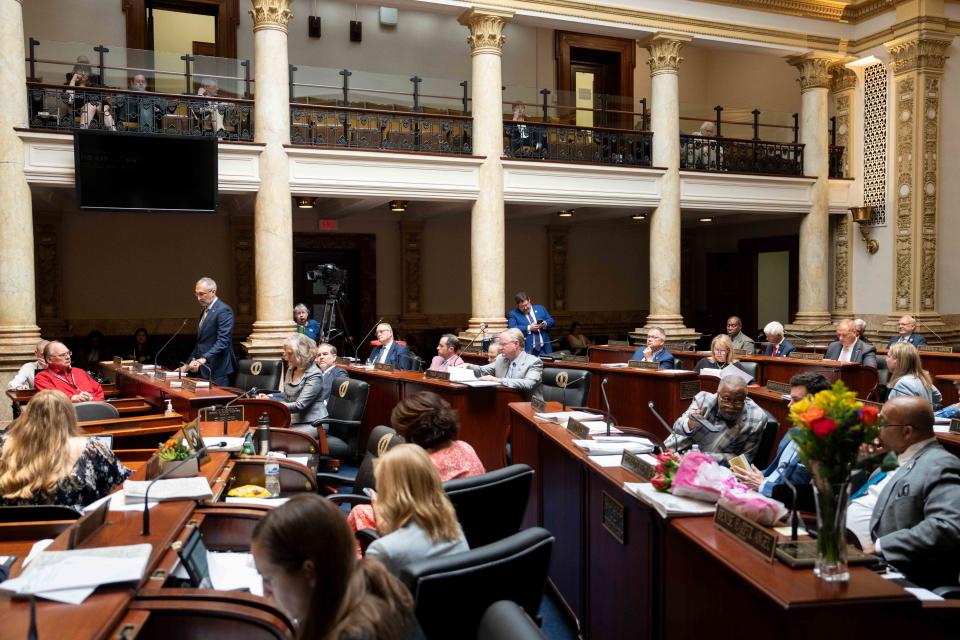
That relationship has continued to work, for the most part. However, when politics between cities and states become misaligned, states have historically clawed power back, experts told The Courier Journal.
In Kentucky, that looks like a more conservative legislature trying to prevent more liberal cities from taking certain actions.
Nationwide, states have preempted local decisions that touch almost every aspect of modern life, from how people carry groceries to how much their rent can increase.
More than 40 states prohibit cities and other localities from passing gun control ordinances that are stricter than state law, with limited exceptions, according to the Giffords Law Center to Prevent Gun Violence. That includes Kentucky, where a 2012 law even says a local official who "violates the spirit" of the state law by passing a gun control regulation can be charged with a misdemeanor.
Louisville Mayor Craig Greenberg told The Courier Journal he has requested more autonomy from the General Assembly to address gun violence and gang violence in Louisville.
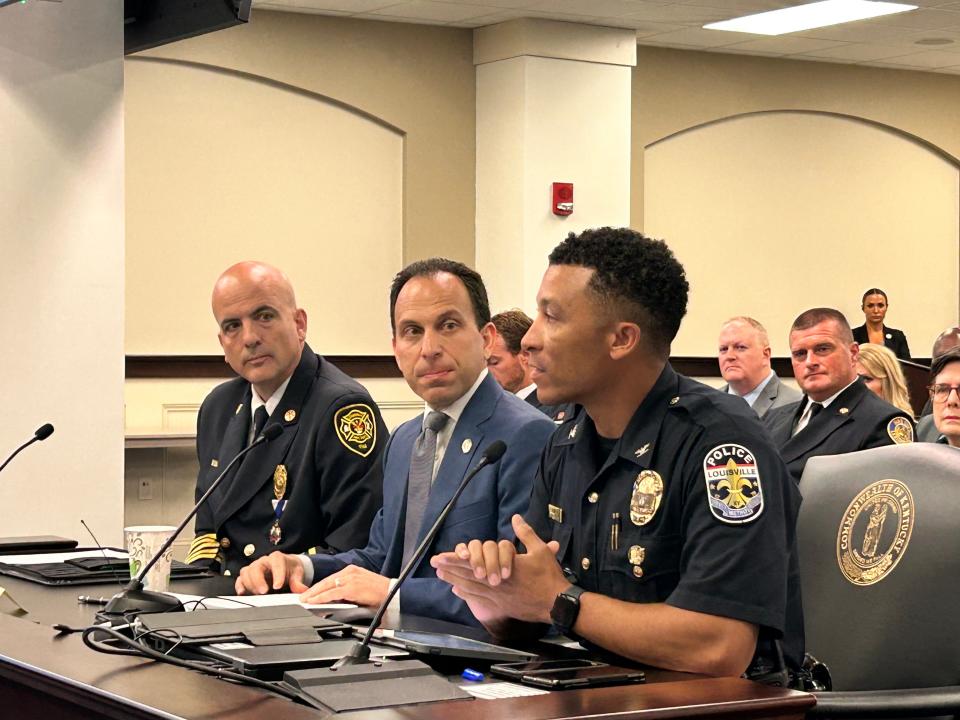
Housing is an especially contentious issue for states, experts say. Many states, including Kentucky, prohibit local governments from implementing rent control ordinances. States like Indiana and Tennessee also prohibit localities from adopting policies that require developments to include below-market rate units, according to the National League of Cities.
In Texas, lawmakers passed an omnibus preemption bill referred to colloquially as the “Death Star” in 2023. That bill, among other things, banned local requirements for heat breaks for outdoor workers. It was deemed unconstitutional but has taken effect while an appeal is pending.
In recent months, preemption in Kentucky has focused on everything from housing to zoning regulations — with the most extreme example being the override of the source of income discrimination ban.
In 2020, Louisville Metro Council passed an ordinance that prohibited landlords from refusing to rent to potential tenants based on where their money was coming from, including Section 8 housing vouchers provided by the federal government.
Lexington passed similar legislation in February. However, that same month, the state legislature passed a law stating no local government could enact such a ban. The bill’s sponsor, Rep. Ryan Dotson, R-Winchester, said it was meant to combat government overreach.
The bill was vetoed by Gov. Andy Beshear, who said it would harm “those with disabilities, senior citizens, low-income families and our homeless veterans,” but the Republican-controlled legislature quickly overrode the veto.
The legislature also changed Metro Council and mayoral elections to be nonpartisan and placed a one-year moratorium on changes to Louisville’s land development code, just as the mayor and other city leaders were attempting to rewrite housing policy to create more affordable options.
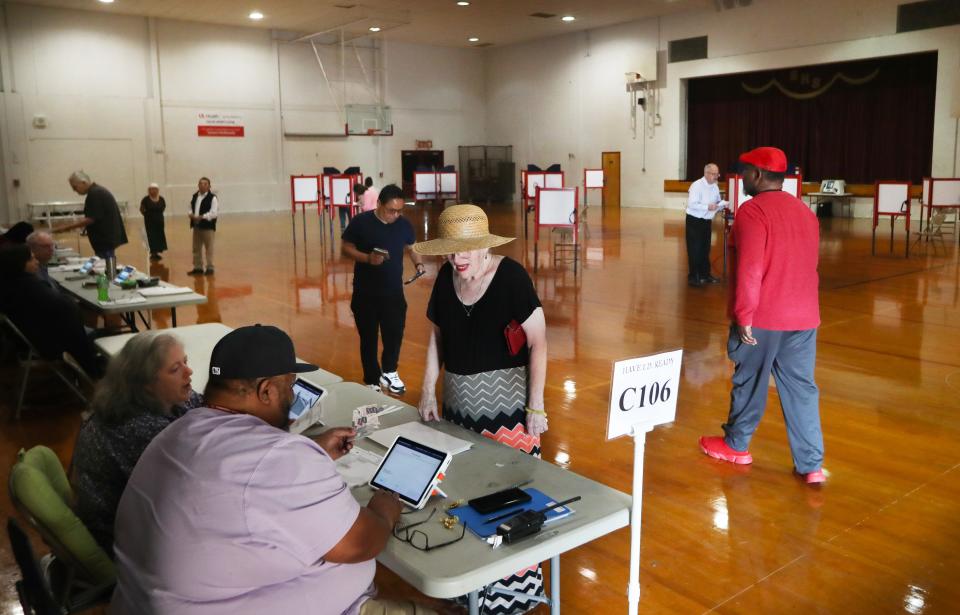
Preemption surges nationally with increased polarization
Richard Schragger, a law professor at the University of Virginia and author of “City Power: Urban Governance in a Global Age,” said cities all over the country are now fighting to maintain local control.
“I think we go through stages in the history of city power in the United States, and we're in a stage in which state legislatures are very hostile to city power,” he said. “Not in all states, but in lots of states.”
There are two reasons for this, Schragger said.
One is that cities are becoming more “aggressive” in their attempts to address problems locally, whether it’s antidiscrimination laws, environmental protections or minimum wage rules.
The other is what Schragger calls a “red state, blue city” phenomenon.
“So you have folks in urban areas or in metropolitan areas who want certain kinds of policies, and you have very hostile state legislatures who are opposed to such policies, and that creates conflict,” he said.
This is furthered by increased polarization in the U.S., Schragger said.
Baker-Smith with the National League of the Cities also believes a “hyper-politicized” environment has contributed to the surge.
“I don't just mean right versus left, blue versus red. I mean that a lot of issues that were not in the political sphere before” are now, she said, pointing to topics from health and pandemic-related decisions to rent control.
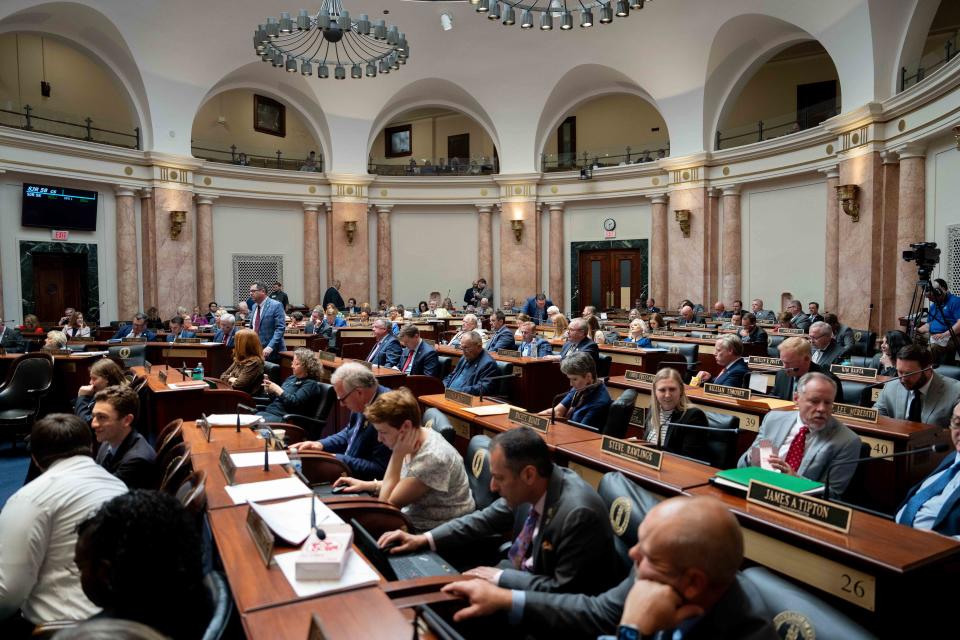
While preemption is most often observed in Republican-majority states with Democratic cities, it also occurs in Democratic states with Republican rural areas — and in Democratic states with Democratic cities.
In Louisville, even bills with bipartisan support and championed by Republican Metro Council members faced the threat of preemption. Within the past year, council members Stuart Benson and Marilyn Parker strongly advocated for a ban on the sale of cats and dogs in retail pet stores, passed legislation locally, then faced preemption months later by the state legislature — although it ultimately did not pass.
“It hits every end of the spectrum,” said Baker-Smith.
Preemption can also create ideological conflicts between two competing principles.
State Rep. Kevin Bratcher is, like Raymond, attempting to move from the state level to Metro Council.
While he voted in favor of many preemptive bills during the 2024 General Assembly, he does not like the concept of “the higher level of government pushing its will on the lower level,” he told The Courier Journal.
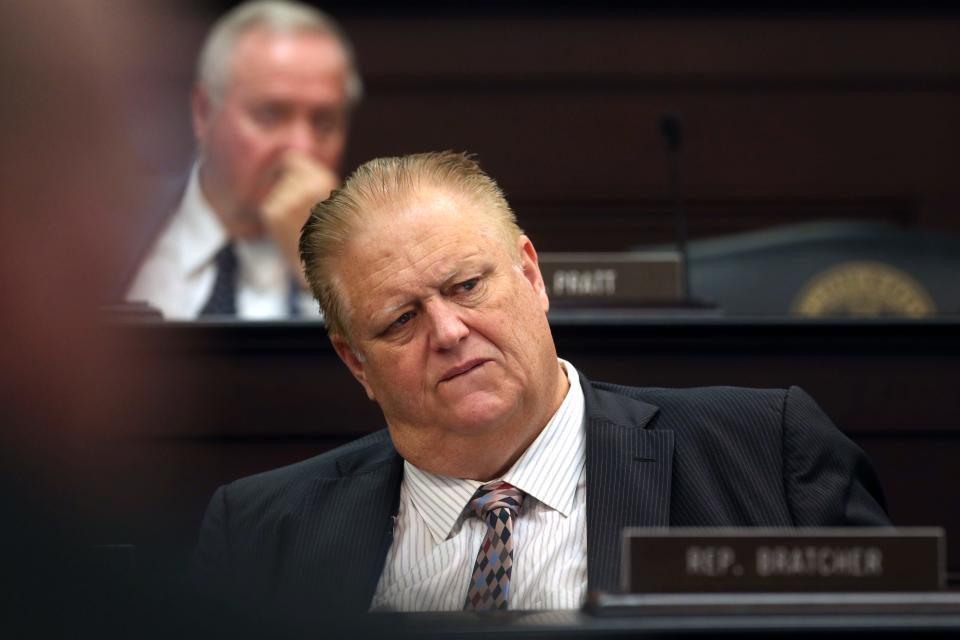
However, those bills furthered policies that align more with his political philosophy as a conservative. For him, it came down to the individual issues.
“I don't like the concept of them doing that, but when you get right down to the particular issues, you have to go with what you believe is right,” Bratcher said.
A state legislature preempting local powers is not inherently problematic, experts emphasized.
“Some of them are, you know, simply regulatory or relatively reasonable from a state level, but then there are ones that appear to be unnecessarily thwarting local authority,” Baker-Smith said — adding that once a preemptive law is in place, it's unlikely to change.
Could Louisville Metro Council experience a ‘chilling effect?’
State preemptions of local control have created a "chilling effect" for city politicians, experts told The Courier Journal.
"Because there is a fear that if they act, they will be preempted, or there is a fear that if they act, there will be some sort of litigation or legal challenge against their action that could potentially financially harm the city," said Katie Belanger, the lead consultant at the Local Solutions Support Center, a national hub dedicated to combating what it views as abuses of states’ preemption powers.
Metro Council President Markus Winkler, however, said he does not believe this will occur in Louisville.
“I don't think you can do things or not do things because you think they might be preempted,” he said. “I don't have any concerns there.”
Still, council members have been frustrated by preemption, Winkler said. And it can create a feeling of being “powerless.”
“What’s next?” he added. “Our lead-based paint ordinance, is that going to change?”
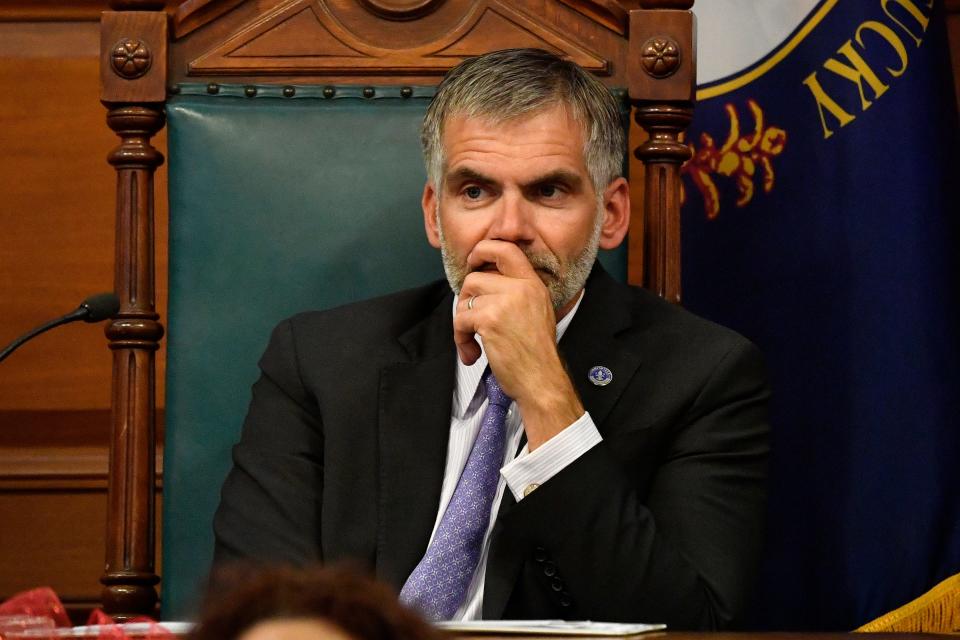
There are also implications for local democracy, several experts told The Courier Journal.
“The city's citizens should have the ability to govern themselves, not for everything and not all across the board necessarily, but certainly for as much as possible to preserve local democratic control and accountability,” said Schragger of the University of Virginia. “The preemption phenomenon and the attack on American cities, I think, is quite dangerous for all those reasons, and I also think it's just bad for policymaking.”
Chaney of the Kentucky League of Cities said the diversity among Kentucky communities is a strength that should be preserved. Local officials are also closest and most responsive to voters, he added.
“They're the elected legislators that people run into at the grocery store, church," Chaney said. "If there's misguiding, the voters remedy that very quickly in local elections.”
Winkler agreed, saying when decisions are made by representatives from the state, local voices get diluted.
“I get to vote for a representative, but that's one out of 100, not one out of 26, and the district is also much, much larger,” he said. “... The people who are closest to an issue are best able to write laws or policies based on the unique needs of that area."
Reach reporter Eleanor McCrary at EMcCrary@courier-journal.com or at @ellie_mccrary on X, formerly known as Twitter. Reach Rebecca Grapevine at rgrapevine@courier-journal.com or follow her on X, formerly known as Twitter, at @RebGrapevine.
More: A new group is about to steer Louisville economic development. Everything we know
This article originally appeared on Louisville Courier Journal: Kentucky lawmakers join national trend of taking power from cities

